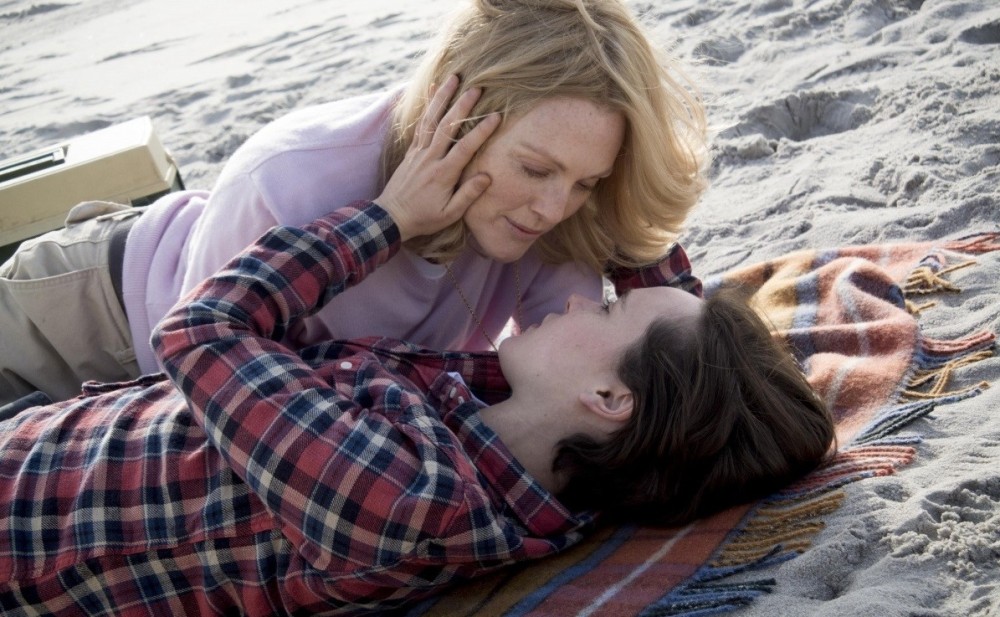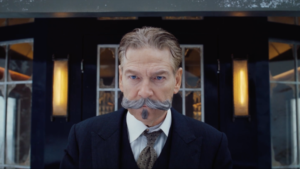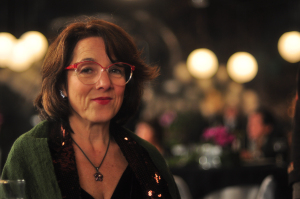
On September 23rd, I attended an early screening of Freeheld as a member of the press. Sitting in my comfortably roped-off section, eating a sandwich with a good friend of mine, I wondered out loud how many queer people were actually in the theater today. Including us, we bet around five tops and were probably right, though there’s no way to prove those statistics. The film hadn’t exactly been getting rave reviews, so regardless of the fact that we both enjoy Ellen Page and Julianne Moore far too much for our own good, we were worried. Add to that the fact that I’d read Kyle Buchanan’s Vulture piece on films about queer characters being made all about straight people, and we were on another plane of worry.
To my surprise though, Freeheld began in a rather lovely manner. The film’s initial two protagonists are closeted detective Laurel Hester (Moore) and Stacie Andree (Page), who becomes her domestic partner. It was cautious in its approach to this queer relationship budding on screen and realistic enough with its awkwardness. Peter Sollett isn’t quite as intimate with his filmmaking as one might argue a queer woman could be in presenting their romance, and in depicting the fear of getting caught, but it’s good enough. The chemistry between Page and Moore can be felt in every scene they’re together; kissing, strolling down the beach finding broken glass, having a fight in the morning, or feeling uncomfortable in a low-key gay bar.
For a fairly long while, all seems perfectly fine, even Ron Nyswaner’s dialogue, which was one of the most potentially worrisome aspects of this going in. Hell, for all the love that folks give Philadelphia, the only work of his I truly find engaging and emotionally impacting is The Painted Veil, and I assure you it’s not because of the writing. Again, I emphasize, I wish this film had continued on this lovely path and remained a beautiful independent romantic drama instead of what it inevitably becomes. Maybe if I’d seen the trailer, I’d have had at least a semblance of warning for what I was in for.
All good things must come to an end, and Freeheld is no exception to this. Hester is diagnosed with terminal lung cancer and her and her partner must fight to secure Hester’s pension benefit for Stacie once she passes away in order for her to remain in the house. It’s impossible to comfortably dismiss this as another narrative playing into the “Bury Your Gays” trope because of the fact that this is actually based on a true story, but that doesn’t mean that the script should act as though its queer protagonists are expendable, regardless of knowing the outcome is death. Unfortunately, Freeheld doesn’t get that. As the battle for equality begins — and I assure you “equal rights” and “equality” are words you will hear more often in this film than if you get pulled over by an HRC representative trying to coax you into donating money on campus — the film’s POV begins to drastically shift.
I obviously didn’t manage to record the amount of time that Hester and Stacie remained on screen for the back portion of the film, but I’d wager it was under half, or at least it felt that way. Nyswaner and Sollett relegate Hester’s emotional state during treatment and Stacie’s determination to stay strong for her partner under incredible stress to the background, choosing instead to focus on two male characters: Dane Wells (Michael Shannon’s “straight white ex-Protestant atheist cop”) and Steven Goldstein (Steve Carell’s over the top civil rights activist).
The film takes special pride in constantly cutting to Wells taking on the mostly bigoted freeholders by using his sweet detective skills (because at this point Hester is unable to do anything but look sad on screen with cancer) or hanging at his precinct with the other detectives, trying to coax them into doing this or that for Hester. He wants them to visit the freeholders meeting, he wants them to donate sick days, he wants them to not use the word dyke. Basically he’s the perfect ally, which is something that can only be found in the movies: completely unproblematic in every way, entirely accepting of every queer thing around him, and dedicated to the only queer cause he’s involved with. People like this don’t actually exist, regardless of how many of your friends tell you they’re all about progress and have cute equal sign bumper stickers.
With every single appearance that resulted in Wells changing someone’s mind, my audience applauded. What started off as an intimate screening of a tender drama had turned into a circus of sorts. A sort of shitty cop donates some of his sick days to the dying lesbian after arguing forever? “Hooray!” The closeted cop leads the way to the freeholders meeting? “Yeah!” The head detective tells everyone he’ll turn a blind eye to them all leaving to support Hester? “What a guy!” This isn’t limited to the detective squad though, as even a scene in which the daughter of a freeholder tells him he’s being a bigot for not going against the grain deserves a “You go girl!” These words weren’t actually yelled, but I can assure you, the applause was there and rather unbearable. No one applauded earlier when Hester and Stacie kissed for the first time. Or when they moved in together. Or when they were walking down the beach in love. Nah.
They did, however, cheer and laugh for Steven Goldstein, and it’s with his presentation that we reach an interesting discussion. It’s been said by the filmmaker that Goldstein himself was on set with Carell, dictating that he should constantly kick his performance up a notch to match the reality of his personality. Now, the reality of the world is that flamboyant gay men absolutely exist, regardless of what shows like Looking and an overwhelmingly masculine culture wish. The problem is when the presentation of feminine gay men on screen come across as the kind of caricature gay men have been faced with for decades.
As much as it can be argued that this is exactly who Goldstein was, his entire presence in the film throws the tone off and allows a primarily heterosexual audience to laugh at him, not with him. Loud and proud would be fine, but not when the performance feels like Michael Scott pretending to be gay. Even Carell’s middling Foxcatcher performance — uncomfortably drenched in queer fear — feels like a less misguided effort than this.
By the same we reach the end of the film, with Hester being awarded “equality” by a group of people who have no real interest in her other than not wanting to lose their own double pension (because the only straight people that ever get boo’d in this movie are the ones who remain bigoted throughout), applause in my audience feels like an afterthought. The clapping felt like it was on autopilot at this point, with the sound of it being half as loud as the roaring applause for multiple straight cops doing things any decent human being would. You could almost hear every pair of hands together saying, “Ah, that’s right. They did it. I should clap now. Those dames deserved it.” And then Hester dies.
This year, I’ve found myself faced with an abundance of great queer films that range from totally in-your-face (Tangerine) to more subtle explorations of queer family structures where there are none (Mommy). These films have been critiqued by people I both know and don’t know, accused of being works of art that hate straight men and all that they stand for. I’ve grown tired of having to defend against remarks as stupid as these, and, while walking out of Freeheld, I found myself angrily muttering, “I hate straight people.” And in that moment — and many others — I actually think I did.
I hate that I’m forced to swallow up art like this and accept it as positive queer representation because, if not, I’m an angry gay man who isn’t thinking about how progress is achieved through “baby steps” or “dominos falling.” I hate that I’m told that films like Dallas Buyers Club, The Imitation Game, Stonewall (which was quite literally said by gay filmmaker Roland Emmerich to not be made for gay people, claiming that wide audiences even need a “straight-acting” gay white male falsely inserted into history to relate to), and dozens of others are great films by people who think they understand what being gay or trans is because of these films.
I hate that I’m expected to be proud that gay men are shown having sex on network television (which I for one find the sex on How to Get Away With Murder, for instance, to be more gratuitous than anything else) or getting married (see: every straight person who wants to talk about Modern Family). I hate that straight people I know expect me to applaud them for watching or reviewing a passively queer film when they flinch at the mere thought of having to watch something like Stranger by the Lake or Saint Laurent.
I hate seeing my straight friends pass around petitions and act like they’re such great allies, but stay quiet in the face of actual homophobia and transphobia online and off. I hate that straight people think overly flamboyant caricatures are what all gay people are and that, because of the negative perspective people have of femininity in queer men, I have to deal with a culture that praises “masc” gay men above all else.
I hate that on the day that the Supreme Court passed marriage equality — a fact that Freeheld obviously reminds you of, even though the events took place over a decade earlier — I had dozens of straight people adding rainbow filters to their profile pictures and congratulating me. I hate that they could act as if all was good now and all awareness that I could still be fired from my job in my current state for being gay or that I’d spent years with my former boyfriend not being able to comfortably hold hands in public had disappeared. That last bit specifically is something straight people (including Matt Damon, whose most recent comments on sexuality were frankly stupid as hell) will never have to worry about, and solely because they see it depicted on screen does not mean they understand it or should be allowed to speak on it as though they have authority.
This hate bubbles up in me all the time, but I can’t say it out loud, or else I’m immediately asked, “Do you actually hate all straight people?” No, of course I fucking don’t. But sometimes it’s a lot easier to think about how much more queer art that positively reflected my experiences and the experiences of others in my community would exist if all of you were out of the picture. Hell, sometimes it’s nice to think about how positive my entire life would be if you all didn’t exist. So, please, get over it, and stop acting like Freeheld — and other films much like it — isn’t painfully outdated and setting us back as a community by praising a community that doesn’t need another pat on the fucking back.
—
Directed by Peter Sollett; written by Ron Nyswaner; starring Julianne Moore, Ellen Page, Michael Shannon, Steve Carell and Josh Charles; 103 minutes.
Freeheld opens in select theaters on October 2nd.



 Derek
Derek
 Isabelle
Isabelle